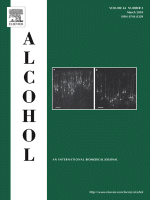Although there are a large number of studies focused on binge drinking and traffic risk behaviors (TRB), little is known regarding low levels of alcohol consumption and its association to TRB. The aim of this cross-sectional study is to examine the association of low to moderate alcohol intake pattern and TRB in college students in Brazil.
7037 students from a National epresentative sample were selected under rigorous inclusion criteria. All study participants voluntarily fulfilled a structured, anonymous, and self-questionnaire regarding alcohol and drug use, social-demographic data, and TRB. Alcohol was assessed according to the average number of alcoholic units consumed on standard occasions over the past 12 months. The associations between alcohol intake and TRB were summarized with odds ratio and their confidence interval obtained from logistic regression.
Compared with abstainers students who consumed only one alcohol unit had the risk of being a passenger in a car driven by a drunk driver increased by almost four times, students who reported using five or more units were increased by almost five times the risk of being involved in a car crash. Compared with students who consumed one alcohol unit, the risk of driving under the influence of
alcohol increased four times in students using three alcohol units. Age group, use of illicit drugs, employment status, gender, and marital status significantly influenced occurrence of TRB among college students.
Our study highlights the potential detrimental effects of low and moderate pattern of alcohol consumption and its relation to riding with an intoxicated driver and other TRB. These data suggest that targeted interventions should be implemented in order to prevent negative consequences due to alcohol use in this population.
alcohol increased four times in students using three alcohol units. Age group, use of illicit drugs, employment status, gender, and marital status significantly influenced occurrence of TRB among college students.
Our study highlights the potential detrimental effects of low and moderate pattern of alcohol consumption and its relation to riding with an intoxicated driver and other TRB. These data suggest that targeted interventions should be implemented in order to prevent negative consequences due to alcohol use in this population.
Request Reprint E-Mail: pri_dib@yahoo.com.br
